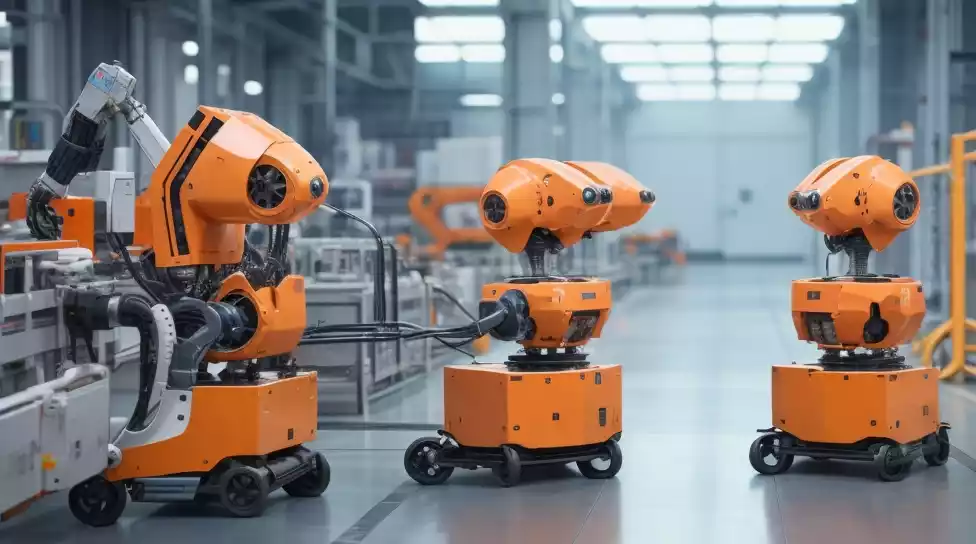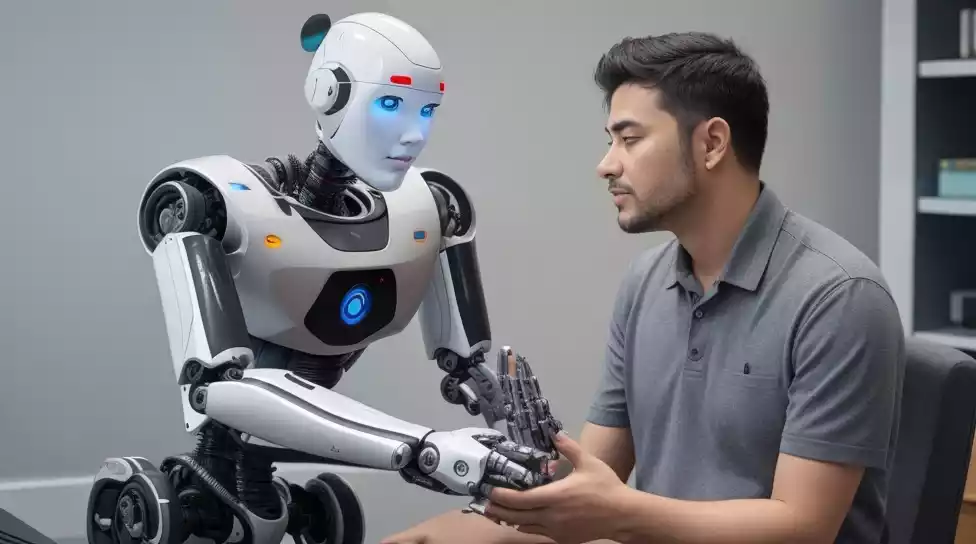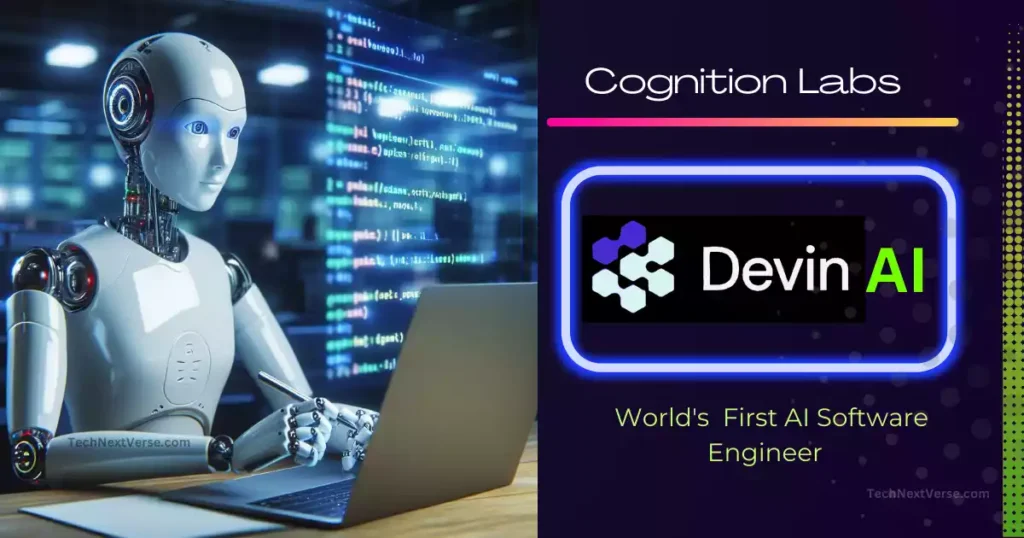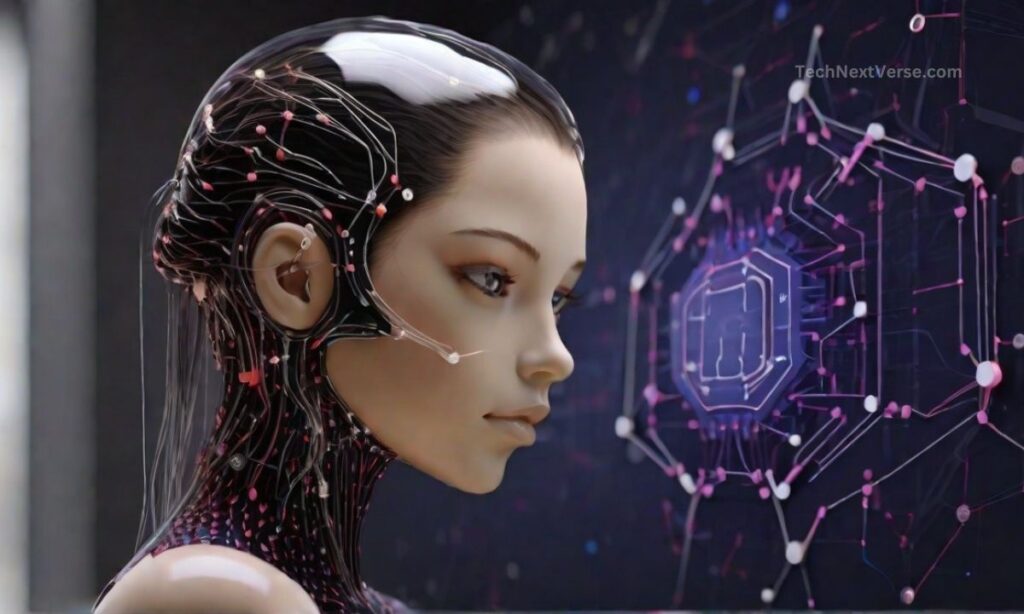Introduction
Artificial intelligence has been a topic of conversation for many years. From Siri and Alexa to driverless cars, AI has changed the way we live, work, and communicate.
This comprehensive guide provides an overview of AI technology and its development over the years, its importance in various industries, its evolution, various forms, applications, impact, future developments, and challenges.
Definition of AI Technology

AI refers to the development of computer systems that can perform tasks that normally require human intelligence, such as learning, decision-making, perception, and language processing.
AI technology involves the application of machine learning, natural language processing, and robotics technologies to create systems that can mimic human intelligence.
Overview of Its Development Over the Years
The development of AI technology dates back to the 1950s when the first AI programs were written. Since then, the technology has gone through several stages of development, from the rule-based systems of the 1970s to today’s deep learning and neural networks.
The Evolution of AI Technology

- Major Milestones in AI Technology: The development of AI technology has been marked by several milestones, including the development of expert systems, rule-based systems, and neural networks.
- The Role of Data in the Evolution of AI Technology: Data has played a crucial role in the evolution of AI technology. Machine learning algorithms are data-driven, meaning that they need a lot of data to learn and improve. The availability of big data has enabled researchers to develop more powerful machine-learning algorithms.
Importance of AI Technology in Various Industries
AI technology has become increasingly important in various industries, including healthcare, finance, transportation, education, retail, and e-commerce. It has enabled organizations to automate tasks, increase efficiency, reduce costs, and improve decision-making.
The Various Forms of AI Technology

1. Narrow AI vs. General AI
Narrow AI refers to the systems that are designed to perform specific tasks, like image recognition or natural language processing. In contrast, general AI refers to systems that can perform any intellectual task that a human can do.
2. Symbolic AI vs. Machine Learning
Symbolic AI involves the use of rules and logic to solve problems. Machine learning, on the other hand, involves the use of algorithms to learn from data.
3. Supervised Learning vs. Unsupervised Learning
In supervised learning, the model is trained on a dataset of labelled examples. The labels tell the model what the output should be for each input. Unsupervised learning involves training a model on unlabeled data to identify patterns and structures.
4. Deep Learning
Deep learning refers to a subset of machine learning algorithms that use neural networks to learn from data.
Applications of AI Technology

- AI in Healthcare: AI technology has enabled significant improvements in healthcare, from the development of smart medical devices to the use of predictive analytics to prevent diseases.
- AI in Finance: AI technology has enabled the development of more accurate, efficient, and reliable financial models, enabling better decision-making and risk management.
- AI in Transportation: AI technology has made it possible to develop self-driving cars, enabling safer and more efficient transportation systems.
- AI in Education: AI technology has enabled the development of personalized learning systems, intelligent tutoring systems, and massive open online courses (MOOCs), making education more accessible and effective.
- AI in Retail and E-commerce: AI technology has enabled the development of more effective, personalized, and efficient marketing and sales systems, among others.
The Impact of the Future of AI Technology
▶ Advantages of AI Technology
AI technology has enabled organizations to automate tasks, increase efficiency, reduce costs, and improve decision-making. It has also enabled significant improvements in healthcare, transportation, finance, education, and retail.
▶ Disadvantages of AI Technology
AI technology raises concerns about job losses, data privacy and security, biased decision-making, and the potential misuse of AI-powered systems.
▶ Ethical Considerations in AI Technology
Ethical concerns surround the use of AI-powered systems, including issues related to privacy, bias, transparency, and accountability.
▶ AI’s Influence on Jobs and the Human Workforce
AI technology is expected to significantly impact the job market, with some jobs becoming obsolete, while new ones emerge.
Future Developments in AI Technology

● The Potential of AI Technology
The potential of AI technology is enormous, with AI-powered systems expected to make significant improvements in various industries, including healthcare, transportation, education, finance, and retail.
● AI Technology and the Internet of Things
AI technology is expected to play a significant role in the development of the Internet of Things (IoT), enabling the development of intelligent and automated systems.
● Quantum Computing and AI Technology
The convergence of quantum computing and AI technology is expected to enable the development of more powerful and efficient AI-powered systems.
● AI Technology and Human Intelligence
AI technology is expected to shape the future of human intelligence, enabling significant improvements in education, healthcare, and other fields.

Challenges Facing AI Technology
● Data Privacy and Security
Data privacy and security are major challenges facing AI technology, with the risk of data breaches, cyber-attacks, and theft.
● Regulations in AI Technology
Regulation of AI technology is crucial to ensure transparency, accountability, and ethical considerations in the development and use of AI-powered systems.
● Lack of Diversity in AI Technology Development
The lack of diversity in AI technology development has raised concerns about bias and ethical issues.
● AI Technology R&D and Funding
The development of AI technology requires significant research and funding, raising concerns about the long-term sustainability of AI-powered systems.
Conclusion
The development of AI technology has gone through several stages of evolution, from rule-based systems to today’s deep learning and neural networks. AI technology has become increasingly important in various industries, enabling significant improvements in healthcare, transportation, education, finance and retail. While AI technology has benefits, it also raises concerns about job losses, data privacy and security, ethical considerations, and potential misuse of AI-powered systems. Regulation of AI technology is crucial to ensure transparency, accountability and ethical considerations. Despite the challenges, the future of AI technology is promising, with the potential to enable significant improvements in human intelligence and various fields.
Frequently Asked Questions(FAQs)
What is AI Technology?
AI technology involves the development of computer systems that can perform tasks that usually require human intelligence, such as learning, decision-making, perception, and language processing.
What are the various forms of AI Technology?
The various forms of AI technology include narrow AI vs. general AI, symbolic AI vs. machine learning, supervised learning vs. unsupervised learning, and deep learning.
What are the applications of AI technology?
AI technology has various applications in healthcare, finance, transportation, education, retail, and e-commerce, enabling significant improvements in efficiency, cost reduction, and decision-making.
What is the impact of AI technology?
AI technology has enabled significant improvements in various industries, but it also raises concerns about job losses, data privacy and security, ethical considerations, and the potential misuse of AI-powered systems.
What are the future developments in AI technology?
The future of AI technology is promising, with the potential to enable significant improvements in human intelligence and various fields, including healthcare, transportation, education, finance, and retail.
What are the challenges facing AI technology?
The challenges facing AI technology include data privacy and security, regulation, lack of diversity in development, and funding concerns.












